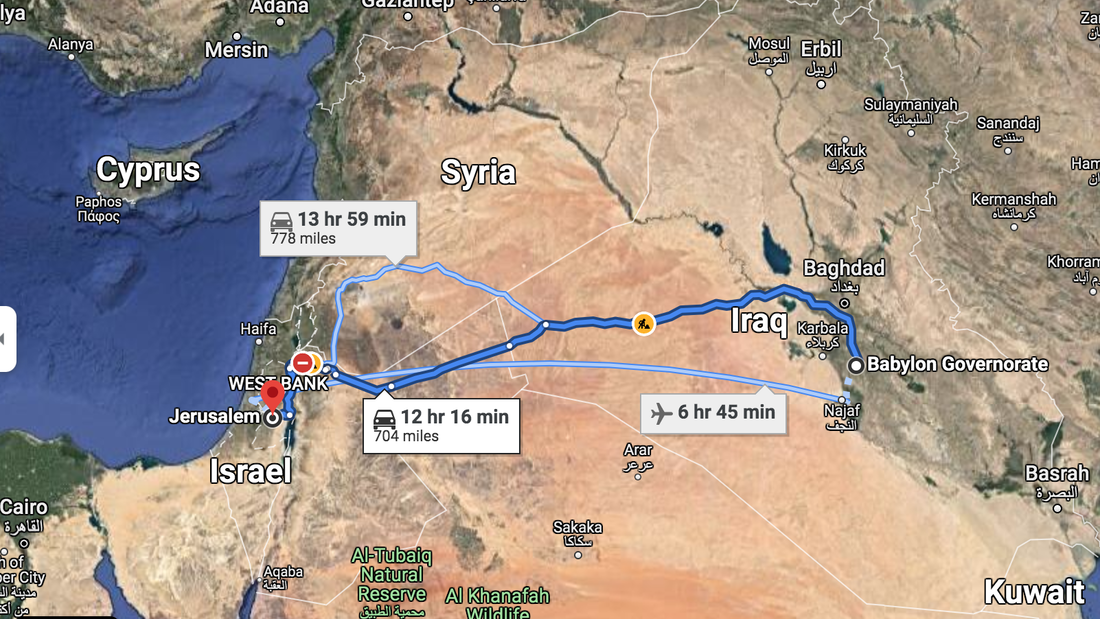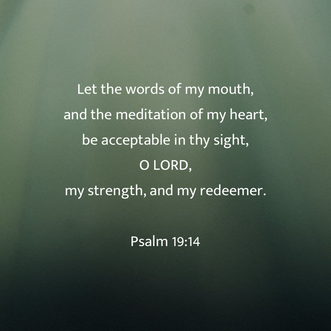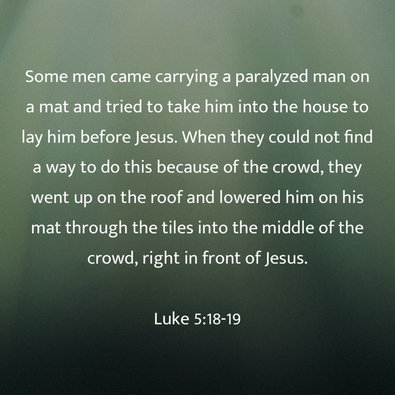|
Good morning! We're so glad you chose to join us today! Last week, many of us were not able to meet together because of the winter storm and power outages. This week, consider what you have to be thankful for. If you have prayer requests, joys or concerns, you can share them as a comment to this post. When you are ready, you can get started with this prayer of thanksgiving from Xavier University. For the expanding grandeur of creation, worlds known and unknown, galaxies beyond galaxies, filling us with awe and challenging our imaginations: We give thanks this day. For this fragile planet earth, its times and tides, its sunsets and seasons: We give thanks this day. For the joy of human life, its wonders and surprises, its hopes and achievements: We give thanks this day. For our human community, our common past and future hope, our oneness transcending all separation, our capacity to work for peace and justice in the midst of hostility and oppression: We give thanks this day. For high hopes and noble causes, for faith without fanaticism, for understanding of views not shared: We give thanks this day. For all who have labored and suffered for a fairer world, who have lived so that others might live in dignity and freedom: We give thanks this day. For human liberty and sacred rites; for opportunities to change and grow, to affirm and choose: We give thanks this day. We pray that we may live not by our fears but by our hopes, not by our words but by our deeds. We give thanks this day. Amen. Today's lesson is on Ezra 7:1-10, 23-26. Lesson Context For some context in today's lesson, we need to look at the greater sweep of the Old Testament. King Solomon, who was the king of all 12 tribes of Israel, died in about 930 BC. After his death, the tribes of Israel split. The ten northern tribes were designated the kingdom of Israel, and the two southern tribes were designated the kingdom of Judah (1 Kings 12:1-24; 2 Chronicles 10:1-11:4). Once the kingdoms were divided, the king of the northern kingdom of Israel established two places of worship outside of Jerusalem. A golden calf was placed at each location (1 Kings 12:28-29; 2 Kings 10:29). This ignored both where the people were to worship, and how they were to worship (Deuteronomy 12:5,11). Eventually, this idolatry led to the destruction and captivity of the northern kingdom of Israel by the Assyrians. This occurred in about 722 BC (2 Kings 17:5-6; 1 Chronicles 5:26). The southern kingdom of Judah experienced a similar fate for a similar reason. Jerusalem, the capital of Judah, was destroyed by the Babylonians in 586 BC (2 Chronicles 36:14-20). Solomon's temple was destroyed and the people of Judah were exiled. Within this context, the book of Ezra describes two waves of Jewish captives returning to their homeland. The first wave took place in about 538 BC. Cyrus, the king of Persia and conqueror of Babylon, decreed that captives could return to Jerusalem to build a temple (Ezra 1:2; 2 Chronicles 36:22-23). This first group rebuilt the altar in 537 BC, then began work on rebuilding the temple (Ezra 3:1-13). Eventually, the temple was completed in 516 BC (Ezra 6:15). Today's lesson focuses on the second wave of captives. They returned in Judah in 458 BC, 80 years after the first return. This return was led by Ezra, an expert in God's law, whose life focused on proper worship of God. Over a century had passed since the Babylonians had taken Ezra's ancestors captive. In the midst of their captivity, the foundation that undergirded the actions of Ezra and his people was their faith in God and hope to return to their homeland. Only in Jerusalem could Ezra and his people worship properly, at the rebuilt temple. I. Ezra's Qualifications The first section of our passage probably occurred about 57 years after the events of the last chapter, the dedication of the rebuilt temple. This was during the reign of King Artaxerxes I of Persia, who reigned 465 - 424 BC. This is the same king who later sent Nehemiah to Jerusalem (Nehemiah 2:1). The passage then traces some of Ezra's genealogy back to Aaron, the chief priest. Our book notes that this relates Ezra to several prominent priests with the expression son of, an idiom meaning descendant. This does not necessarily indicate a direct father-son relationship. The importance of this listing of Ezra's genealogy is to validate his role as leader and priest of his people. For example, in both Ezra 2:62 and Nehemiah 7:64, both the Hebrew and English are identical: "These searched for their family records, but they could not find them and so were excluded from the priesthood as unclean." The passage then continues to Ezra's task: leading a journey from Babylon to Jerusalem. This trip would take extensive planning. To give you an idea, I have gotten a picture from Google Maps, which is below. Even now, it would be over a 12 hour drive, or almost a 7 hour flight between the two cities! Ezra was more than just a priest. He is described as a teacher of the Law of Moses. To be well versed, Ezra easily understood the complex nuances of the law. His focus lay with the reality that it was the Lord, the God of Israel who had given the law. Artaxerxes provided support for this trip. He contributed great quantities of silver and gold for the work in Jerusalem. The hand of the Lord is referred to throughout the second half of the book of Ezra, and acknowledges the sources of the blessings bestowed on this journey and the rebuilding projects in Jerusalem. The journey would be successful because it was blessed by the Lord. II. Ezra's Journey The total number of those who traveled to Jerusalem were fewer than 2,000 (Ezra 8:1-14). The priests and Levites needed to come because they were necessary for proper worship in the newly built temple. The musicians and gatekeepers were necessary for rightly ordered worship. The temple servants were individuals who had given their lives to work and minister in the temple in a non-priestly manner. The entire trip took place in the seventh year of King Artaxerxes I, in 458 BC. Because of the specificity of the dates of travel, it is estimated that the travel time was approximately 118 days, including Sabbath Days for rest. They would have had a fairly slow rate of travel of about nine miles each day. The successful arrival of the people in Jerusalem was further evidence of the blessing of the gracious hand of God upon Ezra. Ezra did not just want to study God's law. The desire to practice observance of God's law implied a full understanding of the law's life-changing affect. Ezra's dedication to his calling undoubtedly changed Israel for the better and encouraged proper worship as the travelers returned to this homeland. III. Ezra's Obligations Verses 7:23-26 are left out of our reading. These verses consist of the words of King Artaxerxes in a letter to Ezra. This letter granted Ezra authority to determine the proper location to observe God's law. The final part of our lesson is the end of this letter from the Persian king. It was customary for the Persians not to levy taxes on priests of any kind of religious order. This letter extended that precedent to include all who served at the house of God in Jerusalem. Artaxerxes empowered Ezra to establish just and consistent guidance on the laws of God. The Trans-Euphrates region refers to the area across the Euphrates River to the west. This shows the geographic extent of the Persian empire. It stretched from the Euphrates River (in modern Iraq) to the eastern end of the Mediterranean Sea, and from northern Syrian to the border of Egypt. The end of the letter might be surprising. Artaxerxes required people to obey both the law of the king and the law of God. Conclusion Ezra flourished as a leader because he focused on what really mattered: the wisdom of God and law of God. He studied God's word and law in order that he might teach and lead Israel well. Because of his determination in study, combined with his priestly background, Ezra showed that he was the most capable leader for Israel's return to Jerusalem. He became an example to following generations of a God-focused leader. The primary goals of his life were to study, to do, and to teach God's word. Prayer Almighty God, we are thankful for the example of Ezra. May we too be good examples as we take on our daily tasks, and may others see that your word guides our lives. In the name of Jesus, Amen. Questions for Discussion What role, if any, should physical or spiritual genealogy play in your life? Why? What disciplines do you find helpful in motivating you to seek, do and teach God's will? Which motivates you more as a Christian: expectation of eternal reward, or fear of judgment? Why? Benediction This week's benediction is from the New International Version. Next week's lesson will be on Job 8:1-10, 20-22.
0 Comments
Leave a Reply. |
AuthorWe are a small, rural Presbyterian church in southwestern Pennsylvania. Archives
July 2024
Categories
All
|




 RSS Feed
RSS Feed